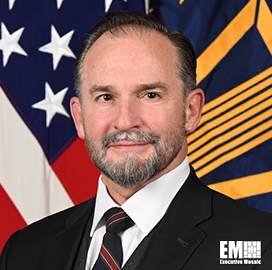Chris Bargery, most recently interim chief of the Pentagon Force Protection Agency, has assumed the role of director of PFPA on a permanent basis.
The Department of Defense said Thursday that Bargery’s appointment took effect on Aug. 23.
In 2018, Bargery joined PFPA as executive director for law enforcement with oversight of operations in the Pentagon Police Division, Threat Management and Force Protection and Emergency Services.
His nearly three-decade career in the U.S. Air Force included time as commander of the Air Force Security Forces Center, wing commander at Lajes Air Base in Portugal and wartime force protection director for Air Force operations in Afghanistan, Iraq and other countries in the Middle East.
Bargery also served as a subject matter expert within the private defense industry.





